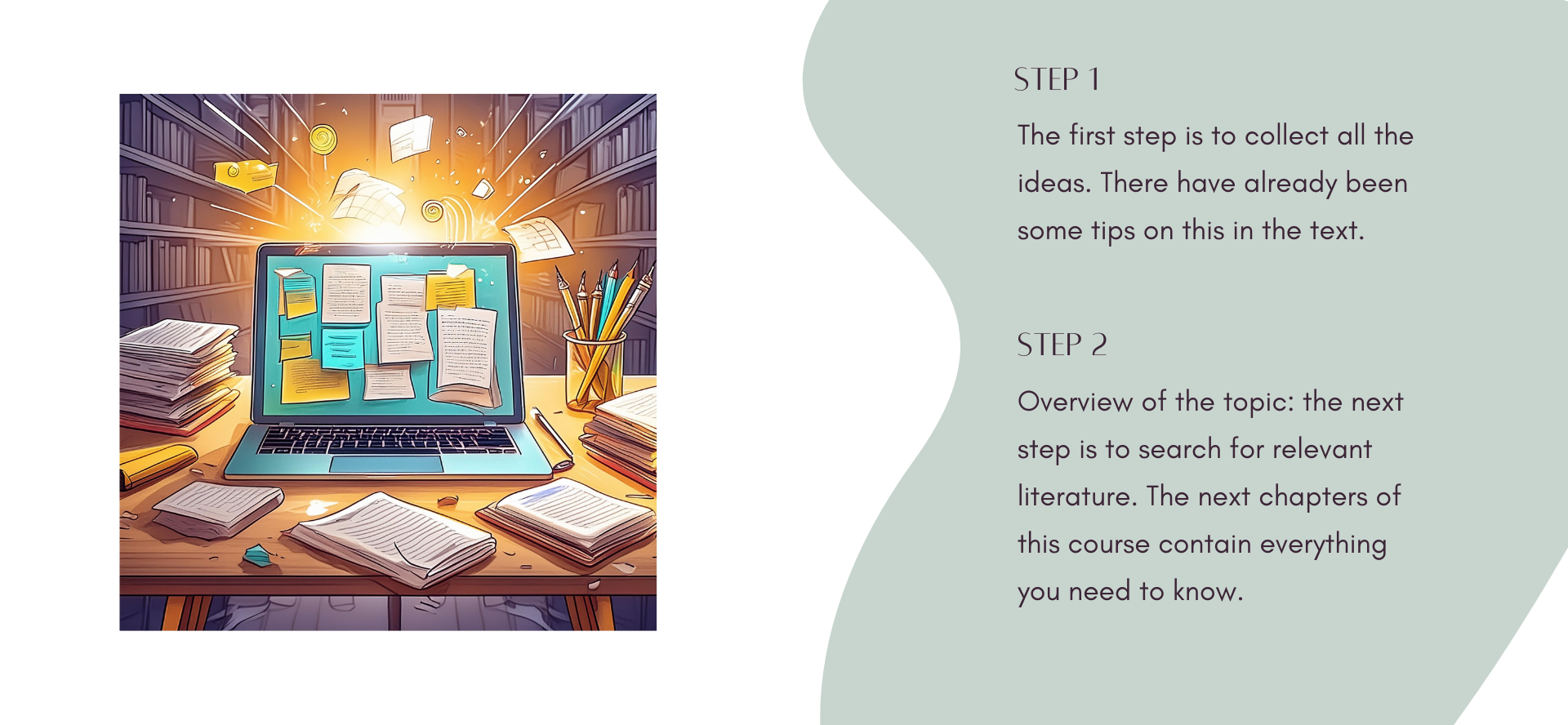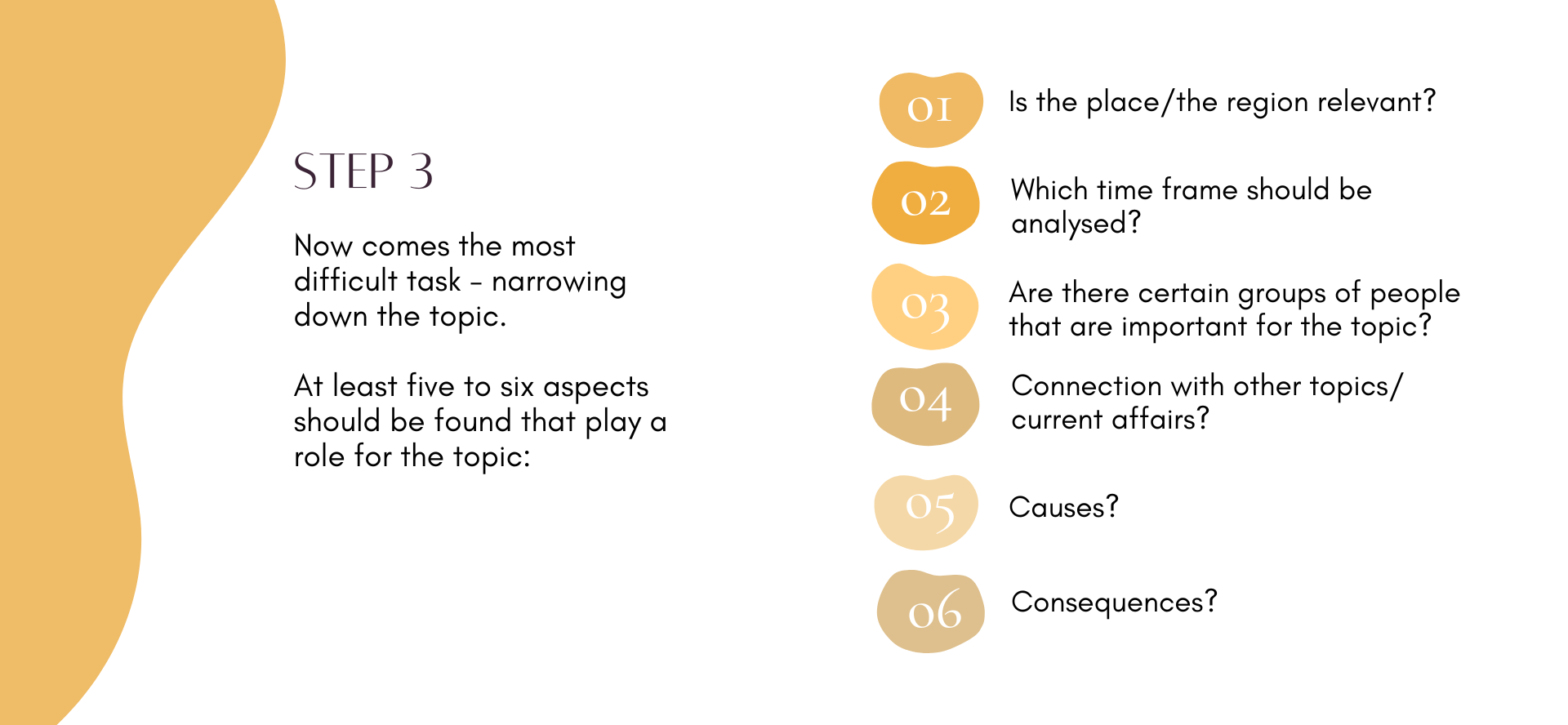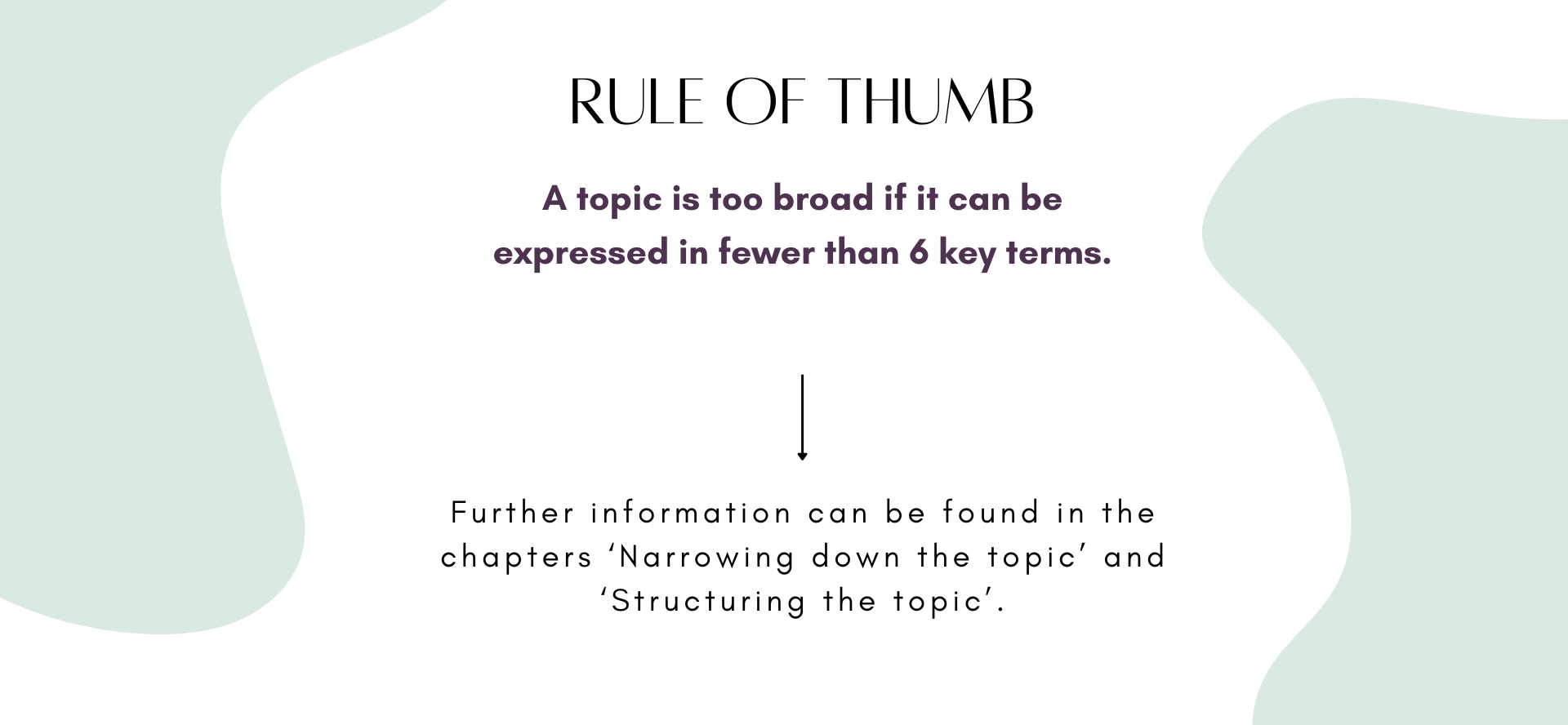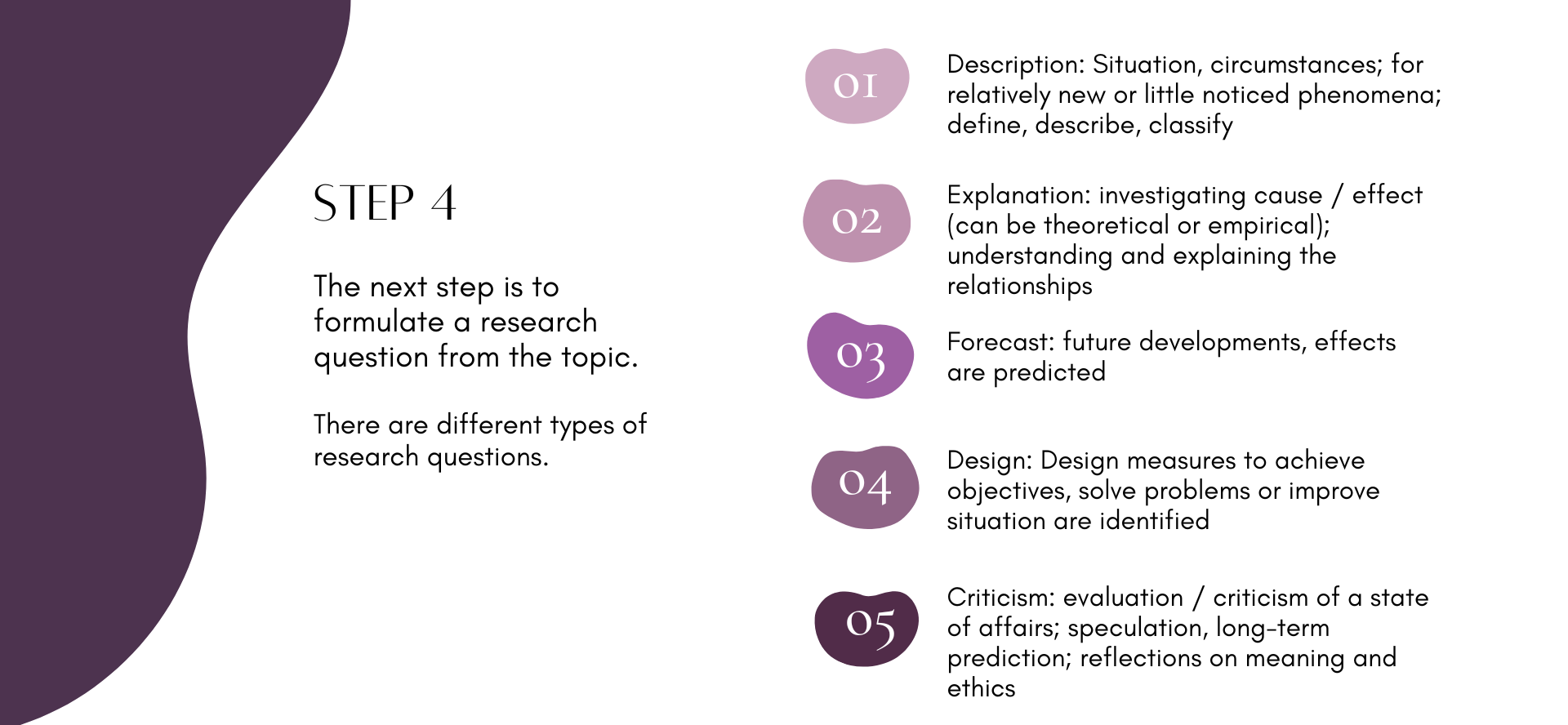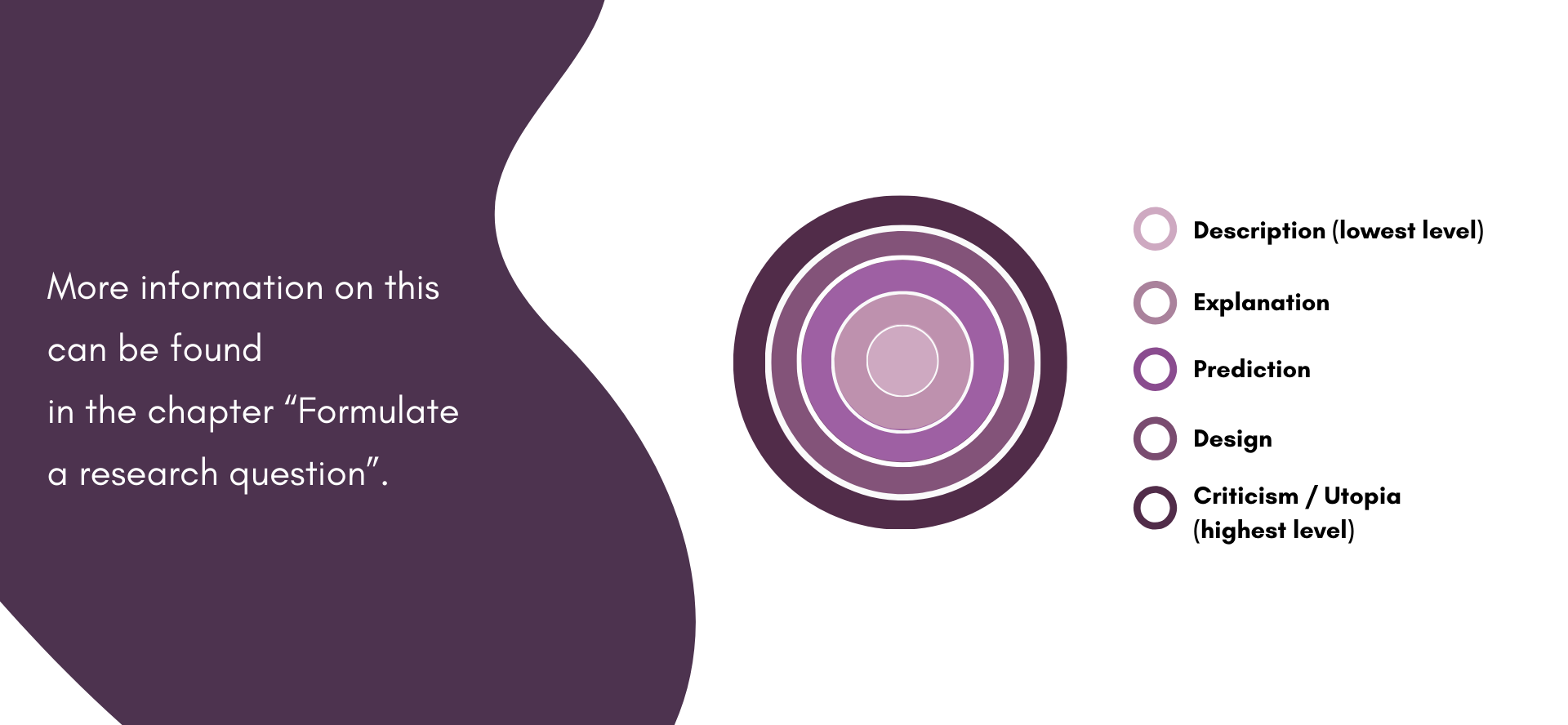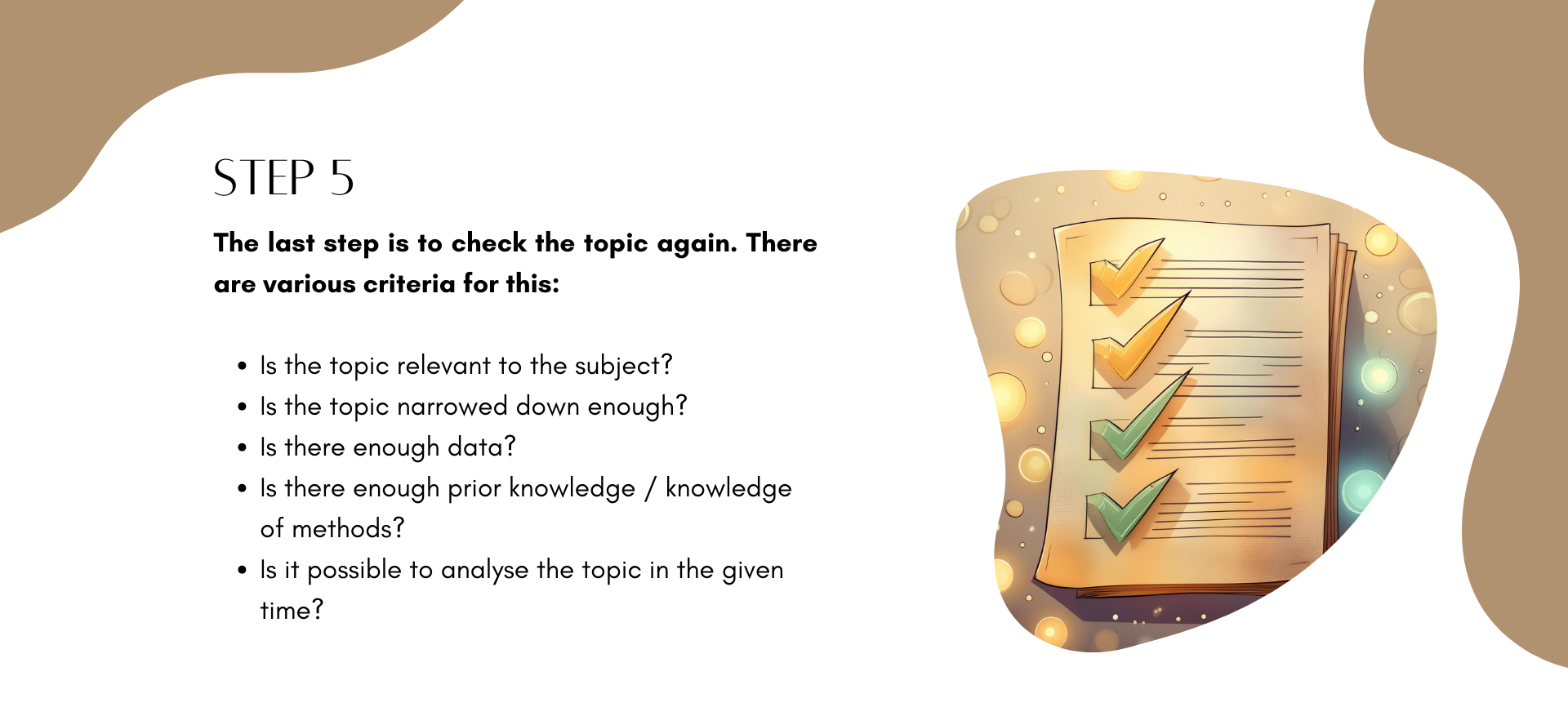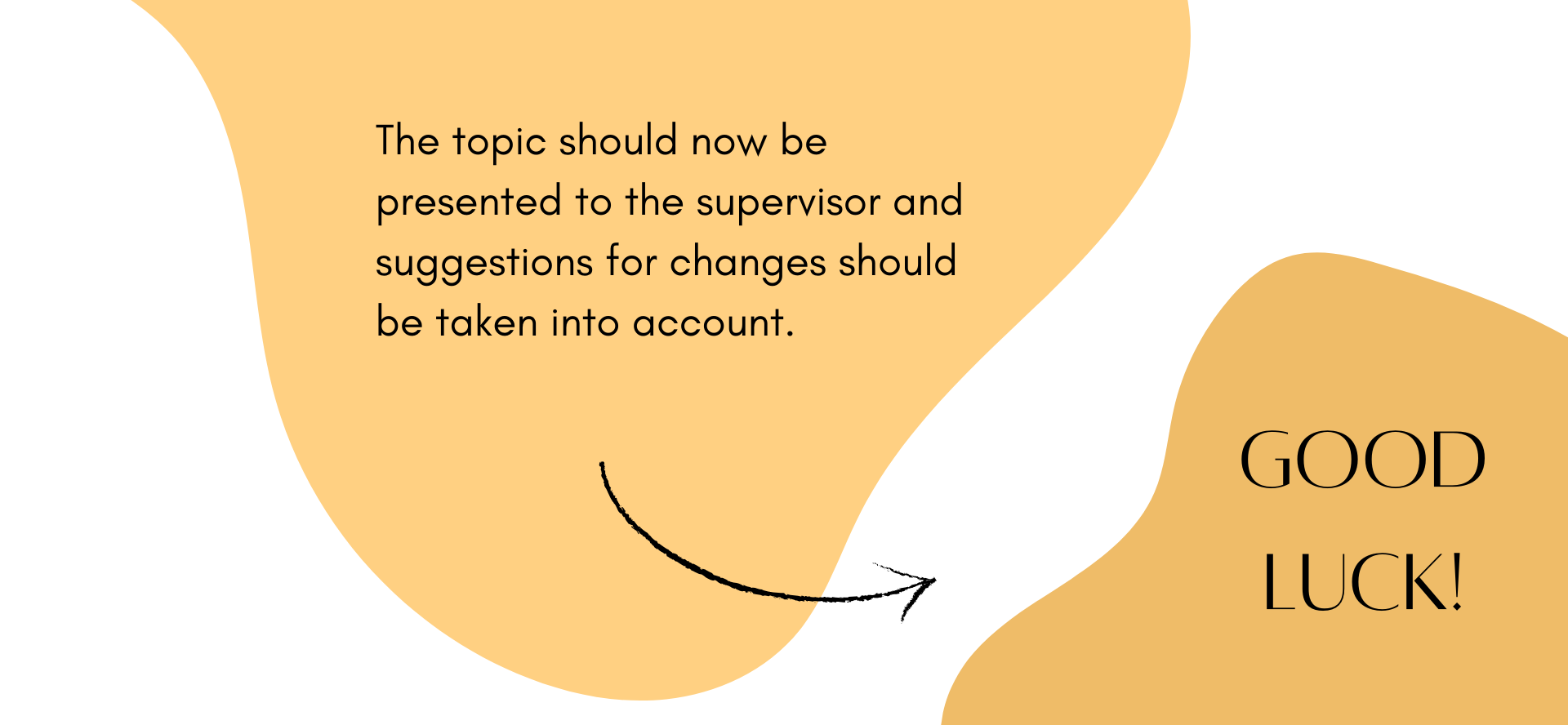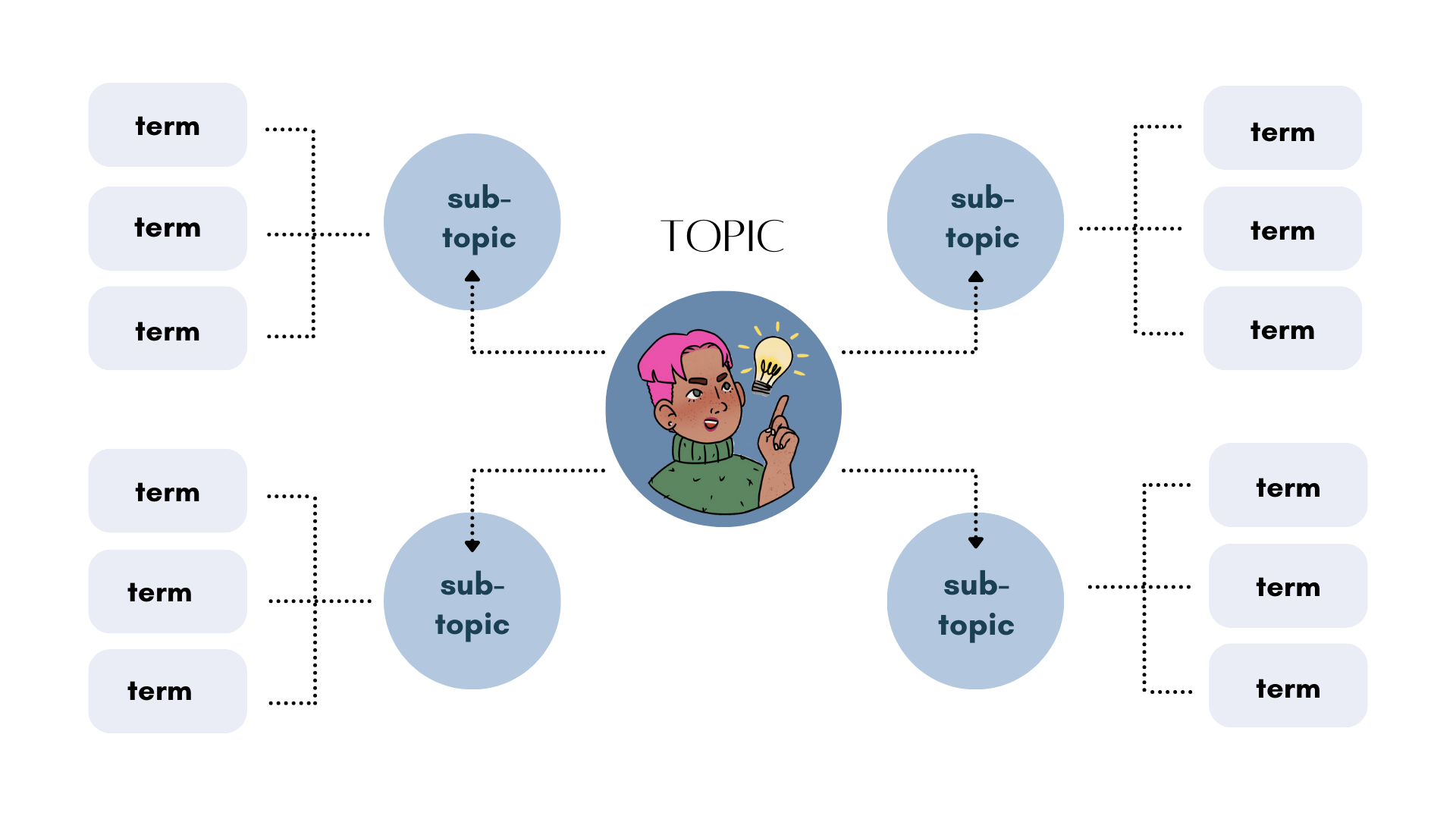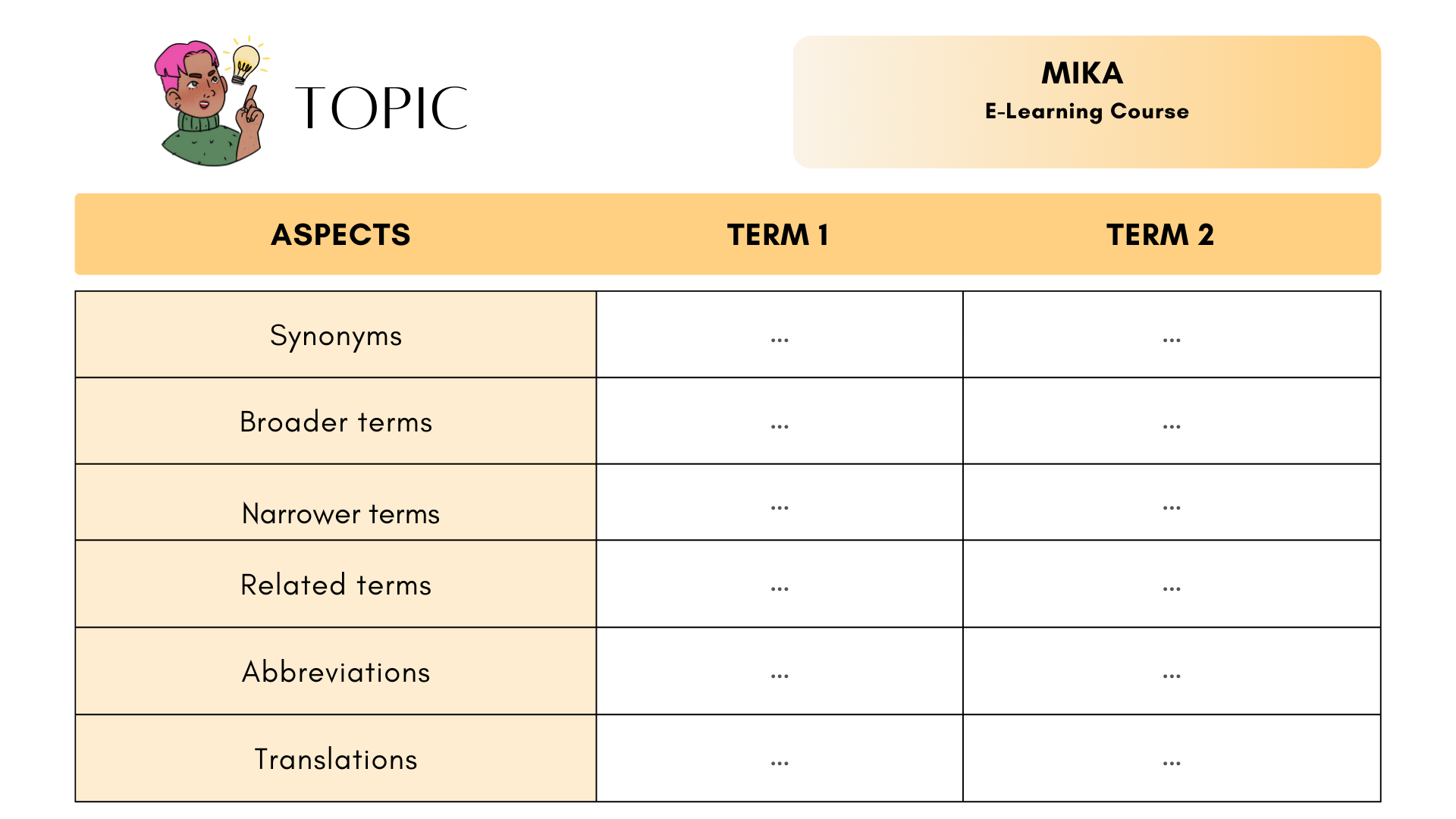
The topic
Within the elaboration of your first academic paper, you may face some challenges. To those may belong, in the case it is not already provided, the decision for a topic. This decision is not banal as the topic has to comply with the requirements of the subject as well as to correspond best possible to your own interests. It should not be too comprehensive but deal intensively with an aspect. This module is made for assisting you in this process.
Finding a topic
The finding of a topic is mostly oriented at the knowledge you already have with regard to the item. For this reason, at the beginning of your search you should ask questions like: On which item I have already read or written something? What do I already know on the item? In which aspects I was already interested before?
You may also make use of experiences and questions of your daily life, of conversations, lectures or an internship for your search for a topic. The web may also be a fruitful source.
A very promising way might be the consultation of academic literature which you already know concerning the item or which you already read. There you find information which questions with regard to an item are currently discussed an on which aspects more or only little knowledge is available.
The literature in the book shelves of Chemnitz University Library is set up in alphabetical order. In the case you know the call number of a book, you may browse through its surroundings in order to find additional books dealing with the same topic. By studying the table of contents, the abstracts and the list of references, you may acquire an overview of the content of the books in short time.
 Hint
Hint
The lecturer of a course may also give you some hints on which topics are currently particularly relevant or which scholars have written something dealing with a topic. In the case of most of the topics, you are not the first one dealing with it but that there are a lot of publications already provided. Thus, the proper research mostly does not start from zero but based on a comprehensive pool of knowledge. In consequence, the academic view on a topic is similar to the view from the shoulders of a giant.
Concentrating a topic
By the time of having a first idea of your topic, you may collect all terms possible related to it coming in your mind via a brainstorming. You may chart content-related terms in a structured way by a mindmap or by a term table, for example.
You may also collect those terms systematically by using the literature you have already read with regard to the topic in order to find significant terms in their table of contents or abstract as well as keywords or striking key terms. The terms found may then be added to the mindmap of term table.
Those terms may serve as starting point for the search for other literature by which the field of terms may quickly be expanded and enhanced.
Structuring a topic
After having acquired a brief overview on the topic, the field of terms compiled in the prior step should be classified according to more general overall topics and more specific sub-topics. This contributes, depending on the scope of processing intended, to more extend or limit the field of the topic. Frequently, more general themes are more intensively explored than more specific fields serving often as item of current research discussion.
Based on the central item, you allocate the respective overall or sub-terms as well as related or synonymous terms to the more general or to the more specific fields of the topic.
As auxiliaries may be used (online-)dictionaries and reference works (e.g. Wikipedia), encyclopaedias, subject-specific dictionaries and glossaries as well as thesauri, for instance. You should also consider variants of important subject-specific terms in foreign languages, particularly English.
Formulate a research question
Frequently, it happens that you are not dealing with an item, but that the item examined is part of a research question which you would like to answer within your academic work. In order to get from the item of the topic to the research question, it may be recommendable to answer a few questions:
- What? E.g. what is the item of the examination?
- How? E.g. how and by which methods the item is examined?
- When? E.g. which is the period of time of the item examined?
- Where? E.g. where the item of examination is situated?
- Why? E.g. for which reasons I would like to examine just this item?
An appropriate research question should be that precise that one is able to see on which item it is exactly searching for the answer and which information is required for answering the question posed.
In addition, it should be answerable by the methods available and within the frame of time and scope set. And finally, it should be formulated in an open manner which means that it may not be answered by yes or no in order to enable follow-up questions..
Follow-up questions
At the end of the first step, a topic is found and a corresponding research question is formulated. Now, beyond the thematic analysis the following follow-up questions emerge:
- Completeness: Which literature is required for a complete overview on the item examined?
- Up-to-dateness: Within which period of time the literature required should have been published?
- Regionality: In which region resp. country the literature should have been published?
- Kinds of publications: Which kind of publications exists and which of them should be included in the search?
The way how those questions may be answered within the search for literature is clarified in the next step.


